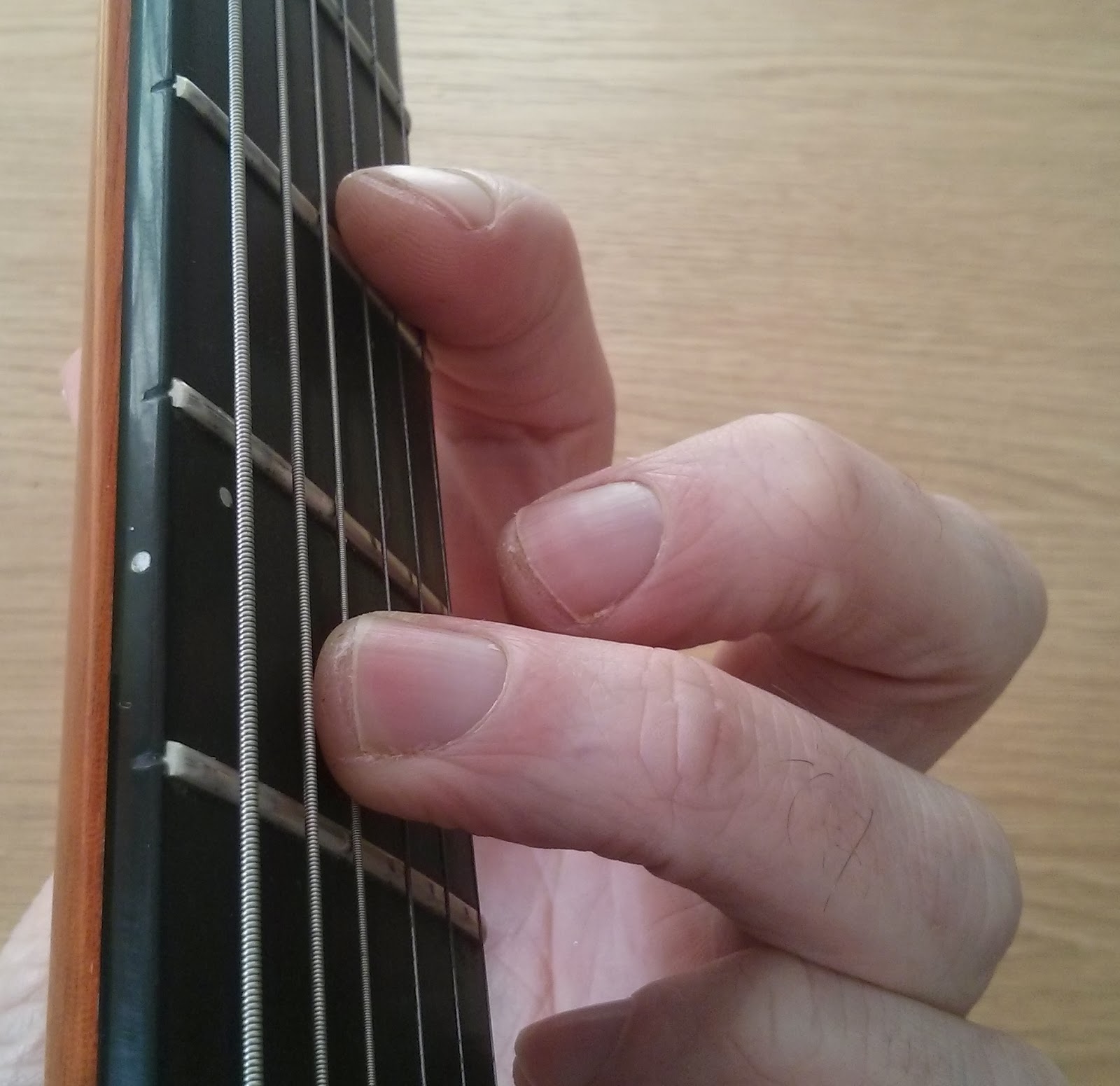Today's guitar chord of the day is G minor. You might see this chord written in several different ways, but they all refer to the same thing:
- Gminor
- Gmin
- Gm, or even on jazz lead sheets
- G-
We're going to look at three different ways of playing the G minor chord. The first fingering involves a
half-barre. For this fingering you lay your first finger across the two three strings of your guitar at the 3rd fret and use your 3rd finger to hold down the 5th fret of the D string.
Make sure that each notes sounds cleanly with no buzzing. It helps to place your finger as close to the fret as you can
The second fingering of this chord involves playing a full
barre chord on the guitar. Here you lay your 1st finger across all six strings of the guitar just behind the 3rd fret.
Again make sure all of the notes sound cleanly with no buzzing.
The final fingering of the G minor we'll look at today doesn't involve a barre, using one finger for each of the four strings we're playing.
The root note of this fingering is on the bottom E string of the guitar
Minor chords use these degrees of the major scale: 1, b3, 5
Gminor uses these notes: G, Bb, D
These chord can be moved to transposed to any other key by moving the shape around on the fretboard. The square in the chord box indicates where the root note is in this chord.
- 1st fret: F minor
- 2nd fret: F#/Gb minor
- 3rd fret: G minor
- 4th fret: G#/Ab minor
- 5th fret: A minor
- 6th fret: A#/Bb minor
- 7th fret: B minor
- 8th fret: C minor
- 9th fret: C#/Db minor
- 10th fret: D minor
- 11th fret: D#/Eb minor
- 12th fret: E minor


























